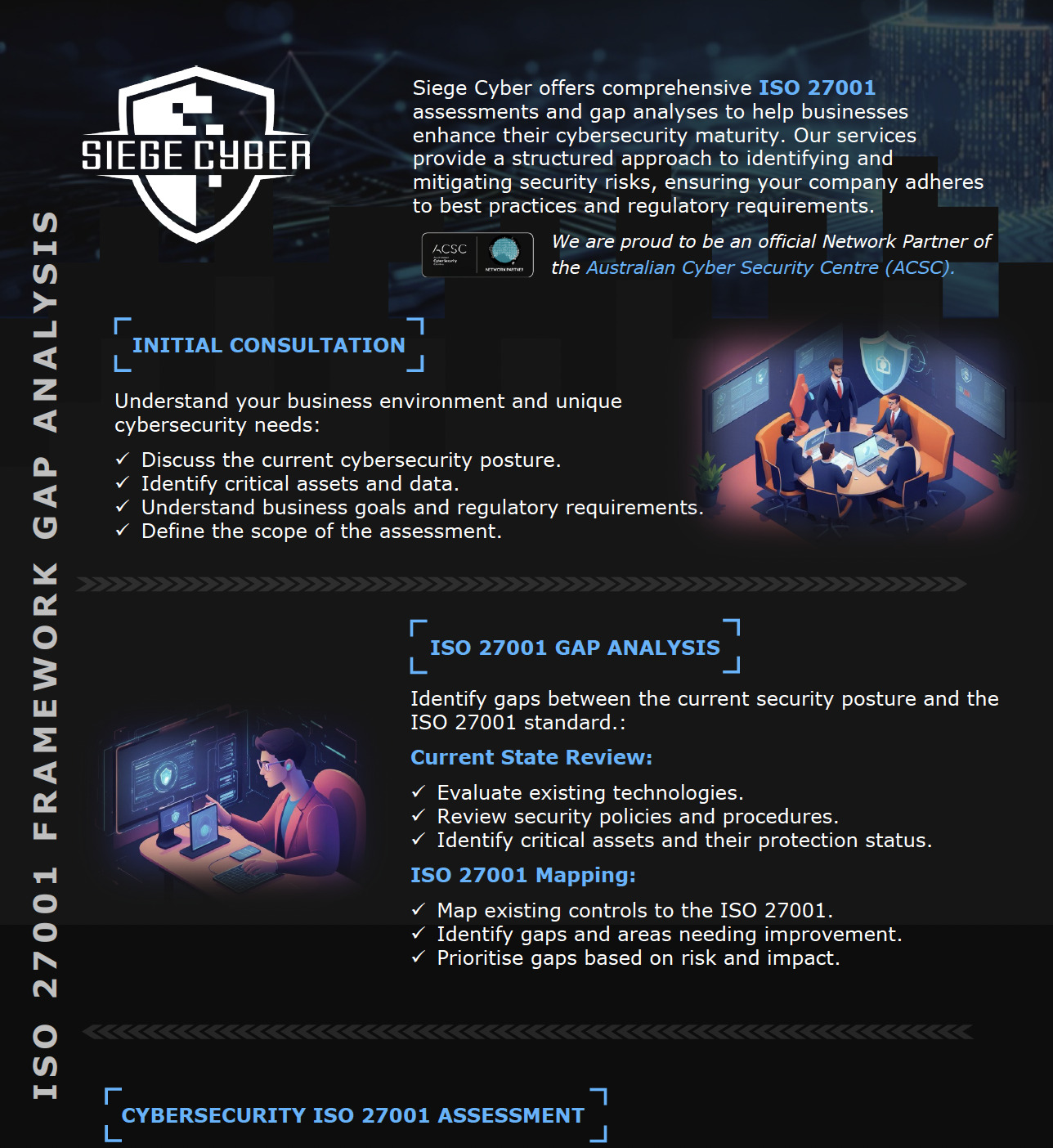In today's fast-paced digital landscape, businesses face numerous challenges when it comes to maintaining robust cybersecurity, adopting modern technology practices, and aligning IT with business goals. Key solutions to these challenges lie in Cyber Essentials, Fractional CTO services, CTO as a Service (CaaS), and DORA consulting and assessments. This article explores these critical topics and their importance for businesses striving to stay competitive, secure, and agile.
Cyber Essentials
Cyber Essentials is a government-backed cybersecurity certification scheme designed to protect organizations from a wide range of cyber threats. It provides a set of security controls that businesses can implement to safeguard against the most common types of cyberattacks. These include firewall configurations, secure system settings, malware protection, access control, and patch management.
Achieving Cyber Essentials certification demonstrates that an organization has taken steps to secure its IT infrastructure and data. The certification process helps businesses assess their cybersecurity posture and identify potential vulnerabilities. It also builds trust with customers and partners, as the certification proves a company’s commitment to safeguarding sensitive information.
For businesses of all sizes, Cyber Essentials is a critical step toward building a strong foundation of security practices. It’s especially important for those operating in industries that handle sensitive data or are subject to regulatory requirements, such as finance, healthcare, or education. By obtaining this certification, companies not only reduce the risk of cyberattacks but also ensure compliance with data protection standards.
Fractional CTO
A Fractional CTO is a part-time Chief Technology Officer who provides strategic guidance and leadership on a flexible basis. For many small and medium-sized businesses (SMBs), hiring a full-time CTO can be expensive, especially if they do not require continuous, high-level tech management. A Fractional CTO allows companies to leverage expert knowledge without the commitment of a full-time hire.
Fractional CTOs are ideal for businesses in the startup phase or those undergoing digital transformation. They bring a wealth of experience in technology strategy, product development, and IT infrastructure, helping businesses make informed decisions about technology investments and long-term planning.
One of the key advantages of a Fractional CTO is the flexibility they offer. Companies can engage them on a project basis, during critical growth phases, or for specific initiatives like software development, cloud migration, or cybersecurity enhancements. This allows businesses to optimize costs while still having access to expert leadership.
CTO as a Service (CaaS)
CTO as a Service (CaaS) takes the concept of a Fractional CTO a step further by providing on-demand access to a CTO for businesses that need immediate tech leadership. CaaS is a scalable solution, offering businesses the ability to tap into top-level technology expertise without the need to hire in-house.
With CTO as a Service, companies can focus on their core operations while outsourcing their technology leadership to a trusted partner. This service can be invaluable during critical phases such as mergers and acquisitions, major product launches, or IT overhauls. CaaS providers offer a range of services, from technology strategy development to overseeing IT teams and managing vendors.
Businesses that opt for CaaS can benefit from a CTO’s ability to bridge the gap between technology and business. They help align IT operations with business objectives, ensuring that technology investments are cost-effective and contribute to growth. Moreover, CaaS offers flexibility and scalability, making it an attractive option for businesses with fluctuating tech needs.
DORA Consultant
DORA (DevOps Research and Assessment) is a framework for measuring and improving an organization's software delivery performance. The goal of DORA is to help companies accelerate their DevOps journey by providing data-driven insights into key metrics like deployment frequency, lead time for changes, time to restore service, and change failure rate.
A DORA consultant works with businesses to assess their current DevOps practices and identify areas for improvement. They provide expert guidance on how to implement best practices, improve deployment processes, and increase overall operational efficiency. By focusing on continuous improvement, a DORA consultant can help businesses reduce downtime, enhance collaboration between development and operations teams, and deliver software faster.
https://www.yourdigitalcto.com/
Cyber Essentials
Cyber Essentials is a government-backed cybersecurity certification scheme designed to protect organizations from a wide range of cyber threats. It provides a set of security controls that businesses can implement to safeguard against the most common types of cyberattacks. These include firewall configurations, secure system settings, malware protection, access control, and patch management.
Achieving Cyber Essentials certification demonstrates that an organization has taken steps to secure its IT infrastructure and data. The certification process helps businesses assess their cybersecurity posture and identify potential vulnerabilities. It also builds trust with customers and partners, as the certification proves a company’s commitment to safeguarding sensitive information.
For businesses of all sizes, Cyber Essentials is a critical step toward building a strong foundation of security practices. It’s especially important for those operating in industries that handle sensitive data or are subject to regulatory requirements, such as finance, healthcare, or education. By obtaining this certification, companies not only reduce the risk of cyberattacks but also ensure compliance with data protection standards.
Fractional CTO
A Fractional CTO is a part-time Chief Technology Officer who provides strategic guidance and leadership on a flexible basis. For many small and medium-sized businesses (SMBs), hiring a full-time CTO can be expensive, especially if they do not require continuous, high-level tech management. A Fractional CTO allows companies to leverage expert knowledge without the commitment of a full-time hire.
Fractional CTOs are ideal for businesses in the startup phase or those undergoing digital transformation. They bring a wealth of experience in technology strategy, product development, and IT infrastructure, helping businesses make informed decisions about technology investments and long-term planning.
One of the key advantages of a Fractional CTO is the flexibility they offer. Companies can engage them on a project basis, during critical growth phases, or for specific initiatives like software development, cloud migration, or cybersecurity enhancements. This allows businesses to optimize costs while still having access to expert leadership.
CTO as a Service (CaaS)
CTO as a Service (CaaS) takes the concept of a Fractional CTO a step further by providing on-demand access to a CTO for businesses that need immediate tech leadership. CaaS is a scalable solution, offering businesses the ability to tap into top-level technology expertise without the need to hire in-house.
With CTO as a Service, companies can focus on their core operations while outsourcing their technology leadership to a trusted partner. This service can be invaluable during critical phases such as mergers and acquisitions, major product launches, or IT overhauls. CaaS providers offer a range of services, from technology strategy development to overseeing IT teams and managing vendors.
Businesses that opt for CaaS can benefit from a CTO’s ability to bridge the gap between technology and business. They help align IT operations with business objectives, ensuring that technology investments are cost-effective and contribute to growth. Moreover, CaaS offers flexibility and scalability, making it an attractive option for businesses with fluctuating tech needs.
DORA Consultant
DORA (DevOps Research and Assessment) is a framework for measuring and improving an organization's software delivery performance. The goal of DORA is to help companies accelerate their DevOps journey by providing data-driven insights into key metrics like deployment frequency, lead time for changes, time to restore service, and change failure rate.
A DORA consultant works with businesses to assess their current DevOps practices and identify areas for improvement. They provide expert guidance on how to implement best practices, improve deployment processes, and increase overall operational efficiency. By focusing on continuous improvement, a DORA consultant can help businesses reduce downtime, enhance collaboration between development and operations teams, and deliver software faster.
https://www.yourdigitalcto.com/
In today's fast-paced digital landscape, businesses face numerous challenges when it comes to maintaining robust cybersecurity, adopting modern technology practices, and aligning IT with business goals. Key solutions to these challenges lie in Cyber Essentials, Fractional CTO services, CTO as a Service (CaaS), and DORA consulting and assessments. This article explores these critical topics and their importance for businesses striving to stay competitive, secure, and agile.
Cyber Essentials
Cyber Essentials is a government-backed cybersecurity certification scheme designed to protect organizations from a wide range of cyber threats. It provides a set of security controls that businesses can implement to safeguard against the most common types of cyberattacks. These include firewall configurations, secure system settings, malware protection, access control, and patch management.
Achieving Cyber Essentials certification demonstrates that an organization has taken steps to secure its IT infrastructure and data. The certification process helps businesses assess their cybersecurity posture and identify potential vulnerabilities. It also builds trust with customers and partners, as the certification proves a company’s commitment to safeguarding sensitive information.
For businesses of all sizes, Cyber Essentials is a critical step toward building a strong foundation of security practices. It’s especially important for those operating in industries that handle sensitive data or are subject to regulatory requirements, such as finance, healthcare, or education. By obtaining this certification, companies not only reduce the risk of cyberattacks but also ensure compliance with data protection standards.
Fractional CTO
A Fractional CTO is a part-time Chief Technology Officer who provides strategic guidance and leadership on a flexible basis. For many small and medium-sized businesses (SMBs), hiring a full-time CTO can be expensive, especially if they do not require continuous, high-level tech management. A Fractional CTO allows companies to leverage expert knowledge without the commitment of a full-time hire.
Fractional CTOs are ideal for businesses in the startup phase or those undergoing digital transformation. They bring a wealth of experience in technology strategy, product development, and IT infrastructure, helping businesses make informed decisions about technology investments and long-term planning.
One of the key advantages of a Fractional CTO is the flexibility they offer. Companies can engage them on a project basis, during critical growth phases, or for specific initiatives like software development, cloud migration, or cybersecurity enhancements. This allows businesses to optimize costs while still having access to expert leadership.
CTO as a Service (CaaS)
CTO as a Service (CaaS) takes the concept of a Fractional CTO a step further by providing on-demand access to a CTO for businesses that need immediate tech leadership. CaaS is a scalable solution, offering businesses the ability to tap into top-level technology expertise without the need to hire in-house.
With CTO as a Service, companies can focus on their core operations while outsourcing their technology leadership to a trusted partner. This service can be invaluable during critical phases such as mergers and acquisitions, major product launches, or IT overhauls. CaaS providers offer a range of services, from technology strategy development to overseeing IT teams and managing vendors.
Businesses that opt for CaaS can benefit from a CTO’s ability to bridge the gap between technology and business. They help align IT operations with business objectives, ensuring that technology investments are cost-effective and contribute to growth. Moreover, CaaS offers flexibility and scalability, making it an attractive option for businesses with fluctuating tech needs.
DORA Consultant
DORA (DevOps Research and Assessment) is a framework for measuring and improving an organization's software delivery performance. The goal of DORA is to help companies accelerate their DevOps journey by providing data-driven insights into key metrics like deployment frequency, lead time for changes, time to restore service, and change failure rate.
A DORA consultant works with businesses to assess their current DevOps practices and identify areas for improvement. They provide expert guidance on how to implement best practices, improve deployment processes, and increase overall operational efficiency. By focusing on continuous improvement, a DORA consultant can help businesses reduce downtime, enhance collaboration between development and operations teams, and deliver software faster.
https://www.yourdigitalcto.com/
0 Commenti
0 condivisioni
147 Views
0 Anteprima








